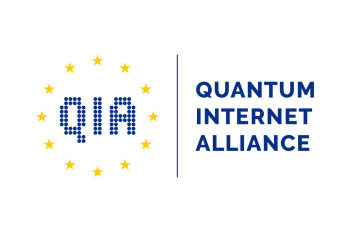

Published today by a group of interdisciplinary scientists and global industry experts, the new paper shows that for Europe to remain competitive and at the cutting edge of deep-tech innovation, it must actively fund the convergence of AI and quantum computing.
Called “Artificial Intelligence and Quantum Computing White Paper”, the new paper highlights the need for a carefully orchestrated funding strategy that spans fundamental research, talent cultivation, and technology transfer incentives to ensure a robust pathway from visionary lab-scale projects to tangible, high-impact industry platforms and applications.
Harnessing this combined power of AI and quantum is essential for solving key technological and societal challenges in fields like drug discovery, climate modelling, and advanced manufacturing, which require computational capabilities that current classical methods simply cannot handle. The authors highlight how Europe can lead in the next frontier of materials science, physics, and high-performance computing – areas that will define the next wave of technological breakthroughs.
Prof. Dr Tommaso Calarco, Director of the Institute for Quantum Control PGI-8 at Forschungszentrum Jülich said: “AI and quantum computing need to evolve together. Europe has strong research capabilities in both these fields but is caught between strong competition from the USA and China, particularly in AI. Our white paper makes it clear that to secure leadership in this technological revolution, Europe must invest in a strategic synergy between AI and quantum computing.”
Coordinated by the Quantum Community Network and CNRS, the paper provides a roadmap to position Europe as a global leader in these cutting-edge fields by providing short-, mid-, and long-term research goals to guide development and scalability.
While AI is a powerful tool that can process information rapidly, its potential is being held back by the limitations of classical computing. The white paper shows that integrating AI with quantum computing creates a powerful synergy that can push AI’s capabilities to entirely new levels.
At the same time, quantum computing, which is still in its early developmental stages, faces major challenges like error correction, optimisation, and system control. The paper highlights how AI can play a critical role in overcoming these obstacles to accelerate the development of quantum computing and unlock some of its potential.
The paper discusses a series of use cases and applications that could benefit from the fusion of AI and quantum computing in order to create capabilities that neither technology can achieve alone.
With drug discovery, for example, the paper shows quantum computing can simulate molecular behaviour at the atomic level and solve problems classical computers cannot handle. But quantum computing alone is not enough. AI can train on quantum-generated data to explore uncharted molecular territories and predict new drug candidates at unprecedented rates.
The white paper offers a set of practical recommendations for Europe to lead in a meaningful and scalable way.
Among some of the authors’ proposals is that quantum AI will only reach its full potential if Europe supports the co-development of AI algorithms, quantum hardware, and enabling technologies like qRAM.
Today, quantum computers are limited by the number and quality of qubits they can use. AI-quantum algorithms can only improve as fast as the hardware itself evolves, meaning research and development in both areas must stay synchronised. If Europe is to lead in AI-quantum computing, it must invest in both hardware and software simultaneously rather than successively.
To truly advance quantum machine learning (QML), the paper argues that Europe needs more involvement from classical AI specialists. At present, most AI research focuses on classical computing, meaning the necessary expertise to design scalable, practical quantum AI algorithms is not necessarily present.
The paper recommends that while these technologies hold enormous potential, their impact will largely depend on how they are applied. According to the new research, the responsible development of AI and quantum technologies must go hand in hand with societal and ethical considerations. The white paper calls for stronger integration of social sciences and humanities (SSH) into AI-quantum research – ensuring that Europe leads not only in innovation but also in the ethical and strategic deployment of these deep technologies.
The authors stress that a more unified and interdisciplinary approach is needed, recommending greater collaboration between technologists, ethicists, and industry leaders to develop a common language around responsible AI-quantum innovation.
With an eye on the European Green Deal, the authors propose the need for rigorous resource estimation and energy-efficient, sustainable AI-quantum systems. Given the extreme computational power and energy use of quantum computing and existing AI solutions, the paper suggests academic and industry work to estimate, benchmark, and optimise these energy consumptions.
A full list of global contributors featuring leading experts in AI and quantum computing can be found here in the white paper.



